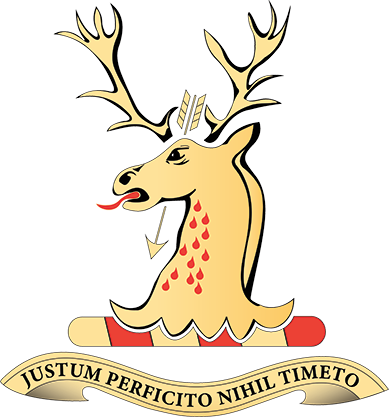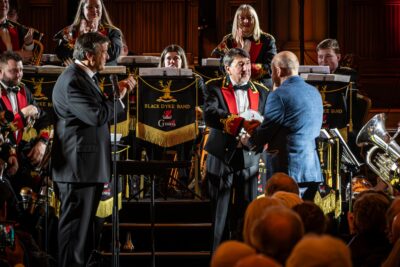Black Dyke Mill
Since 1819 the John Foster name has been associated with the production of fine worsted and mohair fabric at the Black Dyke Mills site at Queensbury, Bradford, in West Yorkshire – an area renowned for textile manufacture. It is a name that is still highly regarded throughout the textile industry today.
The first days of John Foster’s fledgling Queensbury venture are somewhat lost in the mists of time. We know that in 1819 he married Ruth Briggs and started as a worsted manufacturer. His father, a colliery owner, farmed at Thornton near Bradford, while his father-in-law was a landowner in Queensbury. We don’t know if either of the fathers sought to finance the new venture, or whether it might have been the industry’s buoyant state in 1818 which gave John Foster the impetus to embark on his enterprise. If it was the latter, he might have initially regretted his decision as the ensuing two years were a time of economic depression. However, by 1827, fortunes had changed, and his commercial success enabled him to build Prospect House, which remained his family home until he retired to live in Hornby Castle.
John Foster would buy yarns and distribute them from a warehouse at the back of Prospect House, at the junction of the Keighley-Brighouse and the Bradford-Halifax roads, to the hand-loom weavers who then returned with their woven pieces. John would then take these pieces to the Bradford Piece Hall to sell to the merchants who would arrange for the dyeing and finishing.
In 1828 he rented Cannon Mill for spinning before erecting the first part of Black Dyke Mills in 1835. In 1834 John’s father-in-law conveyed part of some land known as Black Myres to him, and here he started to build his mill. Black Dykes Farm, from which the mill gets its name, wasn’t passed to him until 1842. By 1851 Black Dyke Mills was dominating the landscape and at the Great Exhibition, John Foster took first prize for alpaca, with which he had been experimenting since 1837, and for mohair fabrics, and the gold medal for yarns.
The oldest son, William, born in 1821, was already involved in the business by 1835 and did not retire until 1882. He was six years older than his next brother, and having been involved in the company from such a young age, he maintained a dominant position in the company – indeed it remained John Foster & Son Ltd, not Sons! He was made a full partner in 1842, and it was William’s sons who took control in 1884 following John Foster’s death.
Today the mill in Queensbury is no longer in operation, but John Foster still produces some of the world’s finest Worsted and Mohair cloths and has gained a worldwide reputation for quality. Some 70% are exported directly or indirectly to countries worldwide, with the Japanese and Far East markets being particularly important . Some of the world’s leading clothing manufacturers are supplied by the company. The “MADE IN ENGLAND BY JOHN FOSTER” label is a hallmark of the highest quality of mohair, worsted and wool speciality fabrics backed by a manufacturer who leaves nothing to chance.
For further historical information about the Black Dyke Mills please visit the website of some of our local history groups: Queensbury Village and Black Dyke Mills Heritage Venue
Find out more about the company on their website: John Foster and Sons



